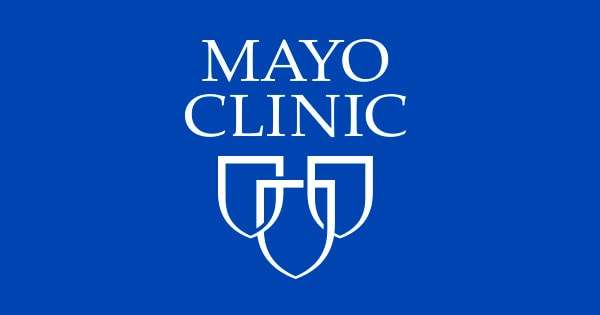Music Therapy TED Talks
For more information on music therapy, click the YouTube links below to watch acclaimed TED Talks by board-certified music therapists, accredited music therapists, and other health professionals. With their first-hand experience, they provide stories and examples of music therapy research, case studies, and real music therapy techniques and interventions.
All videos are linked to a playlist on the MTABC YouTube channel.
Do you know of a TED Talk on music therapy that isn’t included here? Recommend it to us via our contact page.
https://youtu.be/b5pe7KzRwog
Dr. Elizabeth Stegemoller, PhD, MT-BC
Iowa State University
Music and its impact on the brain
18:04
“Elizabeth is an assistant professor at Iowa State University in the Department of Kinesiology. She is an advocate for furthering research into Parkinson’s Disease and her talk features her research and clinical work to support people with Parkinson’s disease. She presents the connection between music and its impact on the brain.”
https://www.youtube.com/watch?v=xgKqX5Yj3b8&t=2s
Joel Kroeker, DAPsych, MA, MMT, RCC
Victoria, BC, Canada
Reinventing perception as a creative act
11:36
“A talk from Joel Kroeker, an accomplished MTABC member based in Victoria. “Most of us assume we simply experience the world as it is, but perception is not always as it seems. Behind this seemingly innocent assumption lives a dynamic creative force of perceptual awareness that is actively and unceasingly interpreting everything we come in contact with, which transforms our experience of the world into (mostly habitual) stories that we tell ourselves. Through realizing that perception is a creative act (not merely a receptive one) it becomes possible to see into the inner workings of our mind’s perceptual mechanism, like the wizard behind the curtain. By directly seeing through our perceptual assumptions and consciously tracking our experience of our world, we can revolutionize how we relate to ourselves and others, which can have a profound impact on all of our interactions and swiftly lead us toward a more enlightened society.”
https://www.youtube.com/watch?v=LGnWyS2Y4r8
Dr. Deforia Lane, PhD, MT-BC
Cleveland, Ohio, USA
Music Therapy & Medicine: A Dynamic Partnership
18:34
“Music therapist, Dr. Deforia Lane takes you inside University Hospitals Seidman Cancer Center to experience first hand the response of patients to music therapy: hear of music’s effects on an unborn child; watch the reaction of a laryngectomy patient; see how therapeutic singing helps a man with stroke to speak again. Dr. Lane shares her personal challenge with cancer and how music benefited her healing. She ends with a probing question for each all who will hear.”
https://www.youtube.com/watch?v=47-90fPyQa8
Erin Seibert, MA, MT-BC
St. Petersburg, Florida, USA
Why I want to change the world with music therapy
16:23
“Erin Seibert describes the profession of music therapy in detail and how it deserves to be a household name within the world of healthcare. Erin highlights the reasons why music therapy is already changing the world one patient at a time and how increased inclusion of the profession will help healthcare progress.”
https://www.youtube.com/watch?v=NlY4yCsGKXU
Kathleen M. Howland, Ph.D., CCC-SLP
Boston, Massachusetts, USA
How Music Can Heal Our Brain and Heart
13:31
“Music therapy is an ancient and yet very modern practice that has the power to heal and transform our brains and bodies in significant ways. Kathleen Howland, speech language and music therapist explains how music really does have the power to heal our brain and heart.”
https://www.youtube.com/watch?v=z_H3MVZPtAA
Tim Ringgold, MT-BC, NICU-MT
Orange County, California, USA
When Meds Fail: A Case for Music Therapy
7:33
“Can there truly be an intersection in life where one can fulfill a lifelong passion and contribute to others’ happiness? Tim Ringgold proves that you can indeed. In his riveting talk, viewers are invited to witness how our old, common friend called Music can truly be a transformational bridge to many divides.”
https://www.youtube.com/watch?v=Q9yjm9Bmw_w
Jodi Winnwalker, LCSW, MT-BC
Portland, Oregon, USA
Healing connects through music therapy
19:02
“Music therapist Jodi Winnwalker shares the connective and healing power of music.”
https://www.youtube.com/watch?v=uWpQyuSm53M
Carly Flaagan, MA, MTA
Fort Collins, Colorado, USA
Symphony of Science – Music Therapy in Healthcare
10:44
“After witnessing firsthand how beneficial a music therapy and speech language pathology collaboration could be for the shared client, music therapy student Carly Flaagan realized, like many others before her, interprofessional health care with the inclusion of music therapy was something to explore. Now as there is a push towards healthcare becoming interdisciplinary, the health care system benefits most from taking a holistic approach. Because music is a part of everyone, a holistic approach that addresses, the “whole” person, should include music. Flaagan explains how music therapy is an integral part of tomorrow’s interprofessional health care.”
https://www.youtube.com/watch?v=qx6KK-eT4qw
Robert Vijay Gupta, BS, MM
Los Angeles, California, USA
Between Music And Medicine
16:28
“When Robert Gupta was caught between a career as a doctor and as a
violinist, he realized his place was in the middle, with a bow in his
hand and a sense of social justice in his heart. He tells a moving story
of society’s marginalized and the power of music therapy, which can
succeed where conventional medicine fails.”
https://www.youtube.com/watch?v=FwfswoGxlNQ
Emily Wangen, MT-BC/L, NMT, NICU-MT
Grand Forks, North Dakota, USA
Breaking Barriers with Music Therapy
15:12
This talk shares how music therapy was pioneered in a rural state and how music therapy has impacted the local communities. Emily discusses how music therapy is used with various populations, discuss numerous techniques used to elicit non-musical responses and is joined by a guest speaker, Kyle Johnson, who shares his story of how music therapy has impacted the recovery of his traumatic brain injury.
https://www.youtube.com/watch?v=3m4mtzTJ-5E
Daniel Goldschmidt, MT-BC
Fort Collins, Colorado, USA
Music – The Beautiful Lie
6:32
“Daniel Goldschmidt, a winner at TEDxRVA’s Open Mic Night, understands
the healing power of music. Originally from Minneapolis, Minn., he
attended the University of Kansas, where he earned his bachelor’s degree
in music therapy. During his final year in college, he discovered music
cognition—the study of how the brain interprets music—and he became
highly fascinated with the interconnections between music cognition and
therapy. He applies this interest in his position as a music therapist
at Poplar Springs Hospital in Petersburg, where he works with
adolescents, adults, and members of the military”
https://youtu.be/iF4z8sf4yQ8
Kalani Das, MT-BC
West Hills, California, USA
Why “Drum Circles” are not Music Therapy
15:32
US music therapist Kalani Das articulates the definitions of music therapy and drum circles, explaining why it’s important to know the difference.
There is absolutely no doubt: Playing a musical instrument, listening to music or even singing have enormous positive effects on one’s life and cognitive development.
In this article I would like to show you 15 presentations from TED conferences discussing clear evidence of the incredible effects of music in our brains.
For example, ways in which our brains deal with creativity and improvisation. Also, how music can affect our emotions and improve our cognitive performances. Finally, we will be able to understand how our brains function interpreting music and how music can be used for medical therapy.
I honestly find these topics extremely fascinating and feel deeply inspired. And hope you do too.
So TURN IT UP and ENJOY!
Music and Neuroscience
1. Ardon Shorr:
Unlocking music with neuroscience
- Main Topic: Music and Information Processing
- Description: Ardon Shorr graduated from Oberlin College majoring in neuroscience and music theory, then taught fencing in Manhattan. He is currently pursuing a Ph.D. in biology at Carnegie Mellon with a research fellowship from the National Science Foundation.
2.
John Iversen:
Does Music Change a Child’s Brain?
- Main Topic: Music and Neuroplasticity
- Description: Music is a central part of life for many of us, whether we listen, dance or play. It can shape our mood or transport our imagination, but what is going on in our brain? Can music be used to help an ailing brain, or boost a learning one? The UCSD SIMPHONY project, in collaboration with the San Diego Youth Symphony, is attempting to answer these questions by studying if music training has an impact on the development of children’s brains and other key skills.
3. Jessica Grahn: Music and the Brain
- Main Topic: Music and Cognitive Performance
- Description: Jessica Grahn, Cognitive Neuroscientist, talks about the power of the human mind and how it can be transformed through music.
4. Jessica Grahn: Music on the Brain
- Main Topic: Human Response to Rhythm
- Description: A neuroscientist with music on the brain. Literally. Can music change the way we move? Jessica Grahn is a cognitive neuroscientist who chases the musical mysteries of the mind. For her, music and the brain inspire her to ask how and why does music make us move? How does music influence different types of movement, and how could we optimize this effect to help patients with neurological disorders?Jessica, a musician herself, is curious about why humans have developed a musical culture (and why monkeys haven’t) and how does musical or rhythmic ability relate to movement and language ability. This Assistant Professor at the Brain and Mind Institute and the Department of Psychology at the University of Western Ontario is using her neuro-musical insights to explore the age-old mystery of why some people can ‘feel the beat’, while others have two left feet.
5.
Jesse Boere:
Your Brain On Music
- Main Topic: Neurostimulation Through Music
- Description: Should our educators pay more attention to music? Yes, they should, says Jesse Boere. He will give you a glimpse into your brain on music and inspire you to support sustainable and quality music education in our schools. Could music be the key to enriching our knowledge economy?
6. J
arrod Haning:
The surprising power of your brain on music
- Main Topic: Neuro Interpretation of Music
- Description: Jarrod Haning is the principal violist for the South Carolina Philharmonic. He has been called the “Seth Godin of music” and the “golden boy for music.” And, with performing experience in 14 professional orchestras and over 20,000 hours of practice he is able to deliver some powerful secrets on mental and physical performance.As an award-winning speaker, Jarrod trains companies in the psychology of music. When you know how music creates inspiration in you, then you are able to create inspiration in other people. By revealing the subconscious mechanism that drives our emotional response to music and language, he is able to engage his audience at a much deeper level.His training gives leaders the ability to create the kinds of emotions that cause people to take action. His training gives managers the ability to disappear the emotional tension around conflict and change. HIs training gives teams the ability to increase productivity by working together more closely.
7.
Anita Collins:
How playing an instrument benefits your brain
- Main Topic: Neuro Activities Through Music
- Description: When you listen to music, multiple areas of your brain become engaged and active. But when you actually play an instrument, that activity becomes more like a full-body brain workout. What’s going on? Anita Collins explains the fireworks that go off in musicians’ brains when they play, and examines some of the long-term positive effects of this mental workout.
8.
Anita Collins:
What if every child had access to music education from birth?
- Main Topic: Music and Brain Development
- Description: This talk was given at a local TEDx event, produced independently of the TED Conferences. Anita Collins shares how learning music influences our brain development, and what this means for musical education.Anita Collins was handed a clarinet at the age of 9, and it changed her life. This single event dictated her future career as a musician, music educator and academic.
9.
Indre Viskontas:
How music makes me a better neuroscientist
- Main Topic: Neuroscience and Musical Training
- Description: Dr. Viskontas is both a neuroscientist and a soprano , in her talk she is sharing how and why she is pioneering with the application of neuroscience to musical training.
10.
Elizabeth Hellmuth Margulis:
Why we love repetition in music
- Main Topic: The Mere Exposure Effect
- Description: How many times does the chorus repeat in your favorite song? How many times have you listened to that chorus? Repetition in music isn’t just a feature of Western pop songs, either; it’s a global phenomenon. Why? Elizabeth Hellmuth Margulis walks us through the basic principles of the ‘exposure effect,’ detailing how repetition invites us into music as active participants, rather than passive listeners.
11.
Hauke Egermann
:
Emotional responses to music
- Main Topic: Emotional Response to Music
- Description: Have you ever wondered why music can have such a profound impact on your mood? How one song can move you to tears in 2 minutes flat and another can make you smile? Well, Dr. Egermann was wondering the same thing and thanks to two distinct but complementary research projects he will have some insights to share with us about the connection between music and our most profound emotions.
12.
Charles Limb:
Your brain on improv
- Main Topic: Creativity
- Description: Musician and researcher Charles Limb wondered how the brain works during musical improvisation — so he put jazz musicians and rappers in an fMRI to find out. What he and his team found has deep implications for our understanding of creativity of all kinds. (Filmed at TEDxMidAtlantic.)
13.
Deepa Rajan:
Harmonizing The Brain: Music and Alzheimer’s Disease
- Main Topic: Music Therapy
- Description: Alzheimer’s disease is a tragic neurodegenerative disorder that steals away the building blocks of people’s lives: memory and cognition. However, people with this disease often viscerally remember parts their lives when they are guided by the live soundtrack to years of past personal experiences. This talk specifies the types of music involved in improving different aspects of cognition in people with Alzheimer’s, and the application of such music by an organization called Harmonies for the Elderly. This poignant discussion of Alzheimer’s disease reveals how music is a window into the beauty, fragility, and resilience of the human brain.
14.
Beatriz Ilari:
Music & the Young Brain
- Main Topic: Music Learning and Development
- Description: Beatriz Ilari is Assistant Professor of Music Education at the University of Southern California (USC), in Los Angeles, where she teaches graduate courses in music education and music psychology. She holds degrees from the University of São Paulo, Brazil (B.A.), Montclair State University, USA (M.A. — violin) and McGill University, Canada (PhD). Dr. Ilari uses a variety of approaches to study musical development and growth of infants, children and adolescents. She has conducted research with babies and children from different parts of the world including the U.S., Brazil, Canada, Japan, and Mexico. Her research appears in many important journals including Arts Education Policy Review, Journal of Research in Music Education, International Journal of Music Education, Update, and Early Child Development and Care, among others. She is currently co-editor of the International Journal of Music Education — Research, and has just initiated an exciting interdisciplinary project on children’s music learning and brain development with researchers from USC’s Brain and Creativity Institute.
15.
Tania de Jong:
How singing together changes the brain
- Main Topic: Singing and Emotional Response
- Description: Tania de Jong AM makes the case that people singing together can change the brain. Pushing the idea that creativity is the strategic tool of the 21st century, she says how our voices have been silenced and that it’s not doing us any good. She explains how singing is a survival mechanism, how it makes our hearts beat together and can help heal strokes and depression.
More on Neuroscience…
In case you are enjoying the topic and want to learn more, I have included two other presentations purely on neuroscience that adds very well to the previous discussion.
16.
Max Cynader:
Enhancing the plasticity of the brain
- Main Topics: Neuroplasticity
- Description: Dr. Cynader was born in Berlin, Germany in 1947 and obtained his B.Sc. at McGill University in 1967, and his Ph.D. from the Massachusetts Institute of Technology in 1972. Following postdoctoral training at the Max Planck Institute, Dr. Cynader held positions at Dalhousie University in Halifax, and in 1979 was awarded the E.W.R. Steacie Fellowship of the Natural Sciences and Engineering Research Council as one of Canada’s outstanding young scientists. He attained the rank of Professor of Psychology in 1981 and Professor of Physiology in 1984, and held the position of Killam Research Professor from 1984 to 1988. On arriving at UBC in 1988, Dr. Cynader headed the Ophthalmology Research Group at UBC until 1998, at which time he was appointed Founding Director of the Brain Research Centre.
17.
Daniel Amen:
The most important lesson from 83,000 brain scans
- Main Topic: Neuroimaging
Final Thoughts
CONGRATULATIONS for making it this far! I truly hope you have enjoyed the presentations and learned as much as I did from them.
So after listening to them all, there is one conclusion: Try to consume as much music as possible. Learn an instrument or simply sing!
And Remember: Neurons that fire together, wire together!




